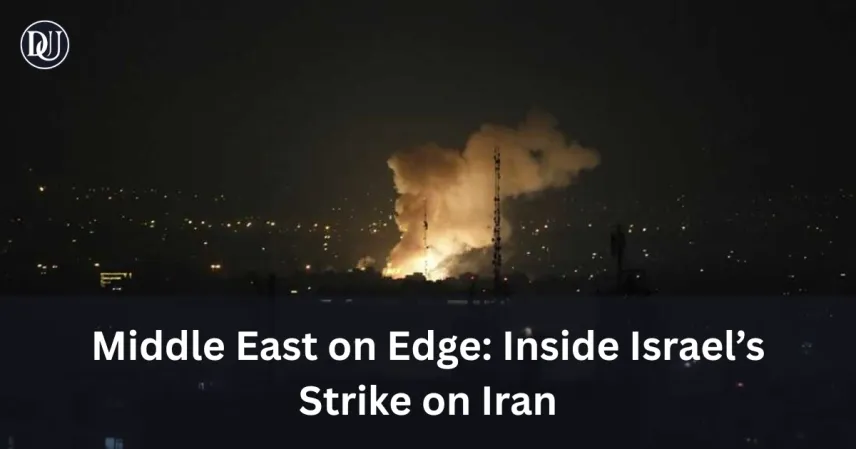🔥 Is the Middle East Boiling Over?
You ever wake up, scroll through the news, and just think, "Seriously? What *now*?" I gotta admit, that was me this morning. It feels like the world's on a constant simmer, and then suddenly, *boom*, the pot boils over. And right now, all eyes are glued to the Middle East. It's intense, you know?
![]()
Here's the thing: we're talking about some pretty heavy stuff. Israel has just carried out strikes deep within Iran, targeting their nuclear sites and, quite frankly, taking out some key military leadership. It's a massive move, one that's got everyone holding their breath, wondering what's next. We're talking about a significant escalation in the ongoing Israel Iran conflict, and the ripple effects? Well, they could be huge.
🧠 What’s Really Going On
So, let's break it down, coffee-buddy style. Picture this: Israel, for a while now, has been super concerned about Iran's nuclear ambitions. They've always seen it as an existential threat, a red line that absolutely cannot be crossed. And it seems they decided enough was enough. Reports from places like CNN and NPR are detailing how Israel launched these pretty precise attacks, hitting specific nuclear and even missile sites. The Washington Post even added the kicker: they apparently killed some significant military leaders in the process. Now, I'm not kidding, that’s not just a warning shot; that’s a major blow.
![]()
Why would this matter so much? Well, if you’re Israel, you're looking at Iran's program and thinking, "They're getting too close to a bomb." And when you take out leadership, that's a direct message, loud and clear. Of course, Iran's not just going to shrug this off. Tehran retaliation is pretty much a given. It’s like kicking a hornet's nest, right? Everyone is braced for it, and the regional stability of the entire area hangs in the balance.
Speaking of that, the U.S. position in all this is, as usual, kinda tricky. You hear whispers of Washington urging for de-escalation, trying to keep a lid on things, especially with folks like Trump chiming in, urging for a deal. But when bombs are dropping and leaders are being targeted, de-escalation becomes a whole lot harder to achieve. It’s a really complex web of geopolitical tensions.
💡 What This Means for Us
So, beyond the headlines, what does this mean for, well, *us*? It's not just some faraway drama. The global impact of a wider conflict in the Middle East could be felt everywhere. Think about energy prices, international trade routes, maybe even broader alliances shifting. It's a domino effect, and nobody wants to see those dominos fall.
![]()
We're talking about a region that's already incredibly volatile. Any major escalation, like this Israel Iran conflict, threatens to ignite something much bigger. The future of Iran's nuclear program and its relationship with its neighbors, and the world, just got a whole lot more uncertain. It's a moment where diplomatic efforts feel more critical than ever, yet also incredibly fragile. It's the kind of thing that makes you just sigh and hope, really hope, for cooler heads to prevail. The uncertainty about what Iran's response will be is the elephant in the room.
📝 Your Final Take
Honestly, watching these current events unfold feels a bit like being on the edge of your seat during a really tense movie, except it's real life. It highlights how quickly things can change, and how interconnected our world truly is. This isn't just about two countries; it's about regional stability, global impact, and the ongoing push and pull of power. Let's just hope that the next few days bring some calm, rather than more fire. It’s a moment that truly underscores the phrase, “brace for impact,” wouldn’t you say?










